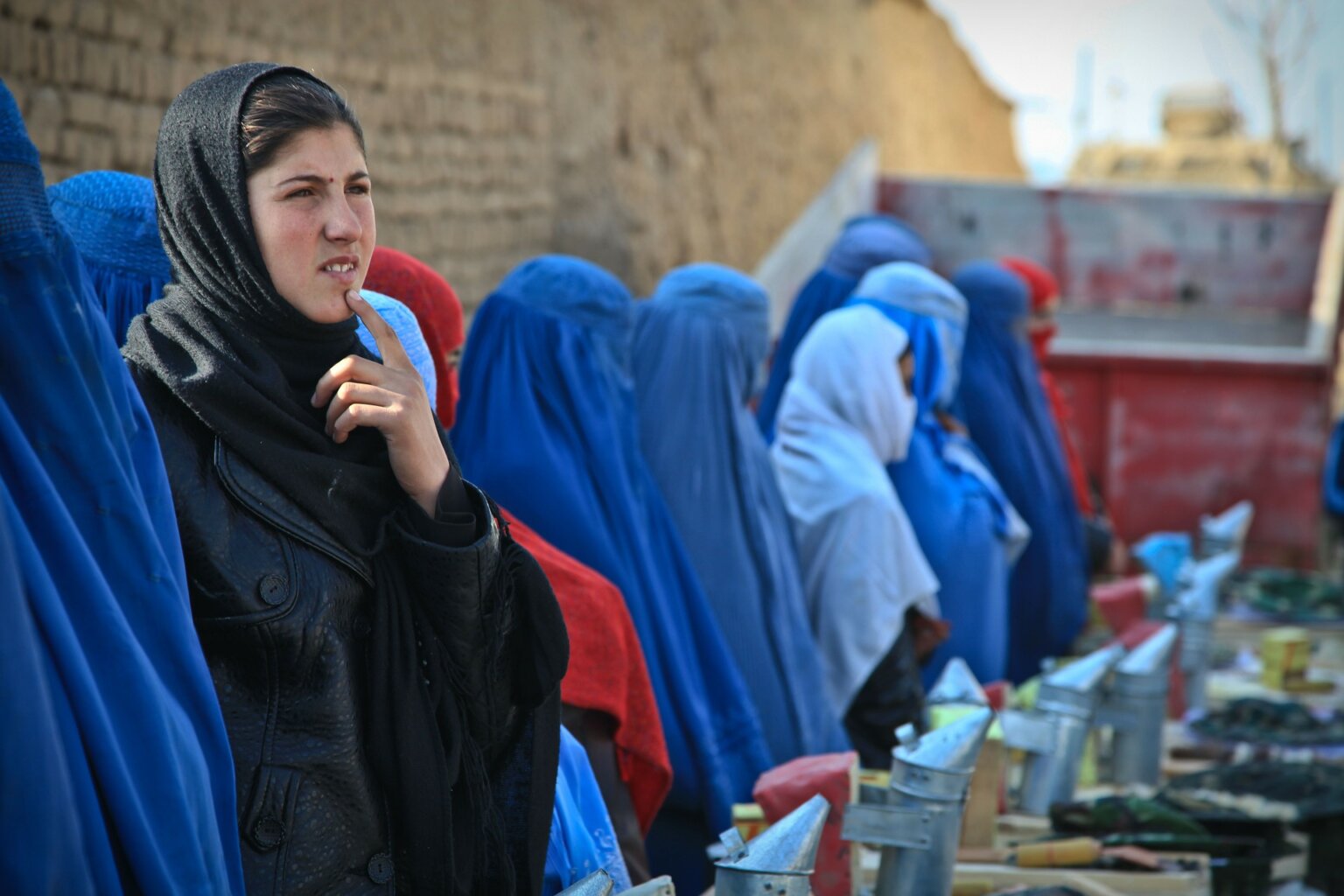- About
- Topics
- Picks
- Audio
- Story
- In-Depth
- Opinion
- News
- Donate
- Signup for our newsletterOur Editors' Best Picks.Send
Read, Debate: Engage.
| August 12, 2021 | |
|---|---|
| topic: | Refugees and Asylum |
| tags: | #Afghanistan, #Taliban, #Mental health, #asylum seekers |
| located: | Afghanistan |
| by: | Shadi Khan Saif |
In conversation with FairPlanet, a number of married and engaged Afghan women and girls said that the long wait for news from abroad and their uncertain fate have created a social taboo for many of them, and that they now grapple with grim psychological issues.
Standing in front of a tainted mirror in her narrow apartment block, Farzana, the mother of a teenage boy, held her index finger to the scars on her face, one-by-one, before getting depressed and turning her back on her image. “I have been ‘Zinda Bewa’ [widow of a living husband] for more than ten years now,” she told FairPlanet.
With a sad smile, Farzana recalled her youth days, when she had many suitors but chose to marry Sakhi, her husband, who has been waiting for a final determination on his asylum application in Australia for nearly ten years now.
In the early days of her marriage, Farzana’s husband was a migrant worker in the Kingdom of Saudi Arabia for about six years and would only visit for one month per year.
Tired of that routine, Farzana said, Sakhi decided finally to migrate irregularly on the treacherous routes to Australia in hope for a better life.
“I do talk to Sakhi through WhatsApp randomly. He says his asylum application has been rejected twice, and if he is rejected a third time, he will be deported,” said Farzana while gazing at the floor of her living room in a western neighborhood of Kabul.
Looking at her 16-year-old son, Farzana said that she dearly wanted to have another child, preferably a girl, but the distant relation has killed that dream, along with so many other wishes she had before getting married.
Not far from Farzana’s home, a maternity facility run by the Doctors Without Borders was brazenly attacked by terrorists last year, killing scores of babies and mothers in cold blood.
Out of sympathy for the victims, and in order to comfort her own desire for another child, Farzana wished to adopt one of the orphaned babies, but her in-laws opposed it.
“I have suffered a lot in this life as a ‘Zinda Bewa’, but more than me, my child has suffered,” she said.
Hailing from the central highlands of the landlocked country, Farzana is not the only one faced with such uncertainty and hopelessness.
Marjan, 34, got engaged to her cousin, who lives in Australia, 10 years ago. Marjan's engagement ceremony took place in Kabul while her fiancé was in Australia. The two had found memories of their childhood together, but have since shared very little with each other, being separated by thousands of miles.
“Sometimes I think about separating from my fiancé, but then I think about the past ten years that I have spent in hope and misery, and am also afraid that our families will never allow me to separate from my fiancé,” the evidently frustrated Marjan told FairPlanet. Decades of devastating war, poverty and unemployment have caused many such couples to live separately.
The Afghan government last month requested that European countries halt the compulsory deportation of Afghan asylum seekers for at least next three months due to increased Taliban violence and a rise in coronavirus infections.
The country’s ministry for refugees and repatriation said in a statement that the escalating war and third wave of COVID-19 infections have caused an economic and social unrest in Afghanistan, and that the country was not suitable for the forced return of Afghan migrants until the security situation improves.
The statement also expressed concern about the increase in internally displaced people and a new wave of asylum seekers to foreign countries.
Abdul Basit Ansari, a spokesperson for the Ministry of Refugees and Repatriations, told FairPlanet that more than 6 million Afghan refugees are now living as migrants worldwide. The Ministry, however, had no statistics on the number of female and male migrants or about their dependents waiting for the processing of asylum requests.
According to Kabul-based psychologist Somayeh Ahmadi, Afghan women who live far from their husbands are being judged by their families and community in addition to being deprived of their partner’s affection and love.
Ahmadi further stated that women in Afghanistan generally live in large and extended families, and this causes other family members, such as the father, brother, father-in-law, and brother-in-law, to impose additional restrictions on them in the absence of their husbands.
She added that all of this causes women to quietly suffer from deep depression.
Interviews for this article were facilitated by Maryam Nabavi.
Image: Joel Heard.
By copying the embed code below, you agree to adhere to our republishing guidelines.
